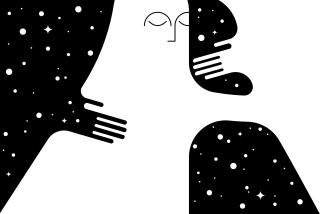When the Veil of Alzheimer’s Has Moments of Light
I greatly appreciated Lauren Kessler’s article on Alzheimer’s patients (“Dancing With Rose,” Aug. 22). She was able to capture the essence of the relationship between the Alzheimer’s patients and their loved ones. I visit my precious aunt in a residential facility often. We smile, we hold hands, we hug, we sing (she often remembers the words from old songs). Nothing has changed in terms of our deeply held feelings for each other. I find that we connect with humor as we always did. When she smiles, her wrinkles disappear and her whole face lights up. I choose not to dwell on what was. This is love, and I am so grateful for all the moments we still have together.
Yvonne Burns
Oak Park
*
For families like mine who are dealing with this awful disease, Kessler’s story provided us with “fresh eyes” and a different slant on a difficult time in our lives. I have made it required reading for every involved member of my family, and recommended it to everyone I know who is going through this experience.
Judy Hernandez
Upland
*
The article urges us to change our frame of reference on Alzheimer’s by considering the Zen Buddhist philosophy of grounding oneself in the moment. Zen Buddhism says that by ridding oneself of the attachment to a false notion of self or “I,” one can be free. The difference is that the Alzheimer’s patient does not have the “free will” to make this choice to clear his mind. Rather, his mind has been deprived of any ability to thoughtfully remember or consider anything.
Fred Hearn
Los Angeles
*
Like Kessler, I said the “long goodbye” to my mother as I watched her mind and body deteriorate over 10 years as she succumbed to Alzheimer’s disease. It would be such a relief to change how I view Alzheimer’s and instead think of it as “clearing your mind, detaching from your thoughts, grounding yourself in the moment.”
But as a nurse who has cared for Alzheimer’s patients, that approach represents naive, wishful thinking. Alzheimer’s patients receive antidepressants, anxiolytics, antipsychotics, tranquilizers, sleeping pills, laxatives and food supplements to quell the depression, anxiety, panic, combativeness, sleeplessness, agitation, constipation and loss of appetite they experience. I would not call that a “Zen experience.”
Ellen Sultan
Santa Ana


